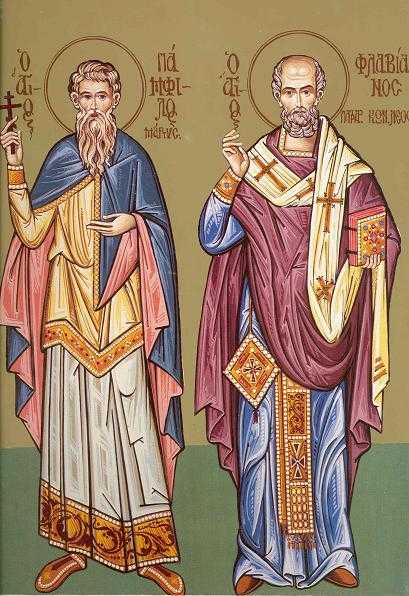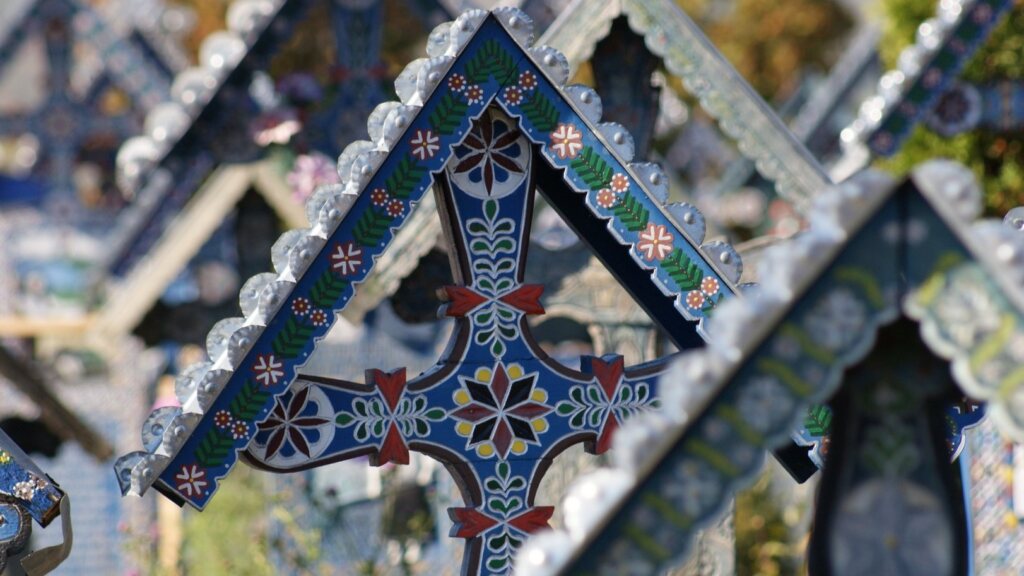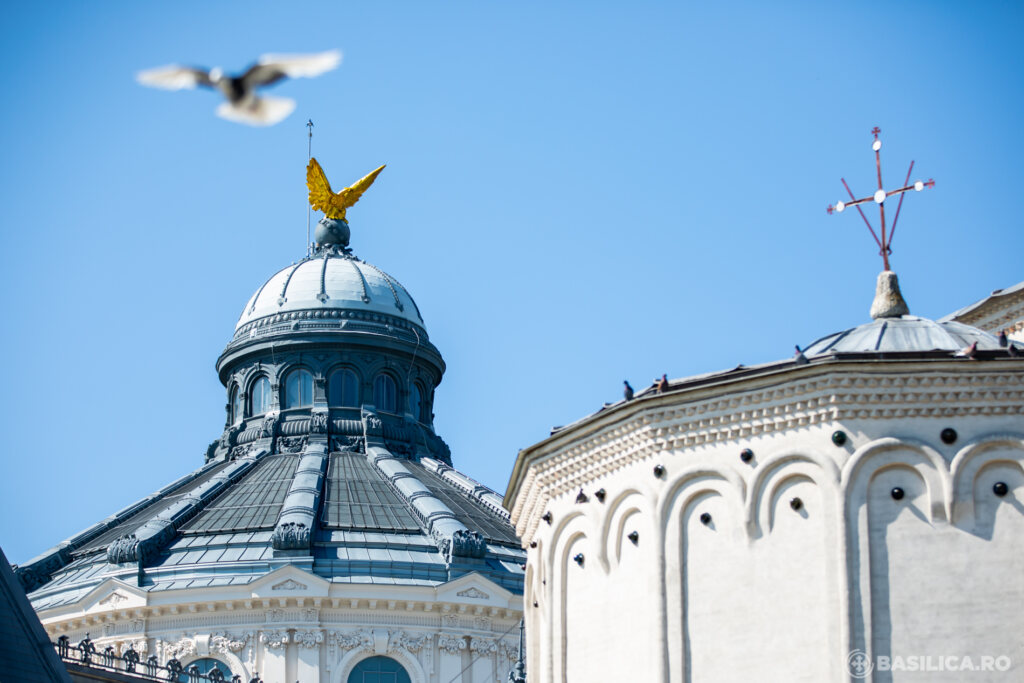Orthodox Calendar – February 16
The Holy Martyr Pamphilius
A native of the city of Beirut, he was educated at Alexandria, after which he was made a priest at Caesarea. He devoted much labor to collating manuscripts and correcting copyist errors in the texts of the New Testament.
The corrected texts of Saint Pamphilius were copied and distributed to anyone who wanted them. Many pagans were converted to Christ through them.
His works and concerning matters at Caesarea were gathered up into the extensive library of spiritual books available for the enlightening of Christians. Saint Jerome (4th-5th century) deeply respected Saint Pamphilius and considered himself fortunate to have located and acquired several of his manuscripts.
Actively assisting Saint Pamphilius in proclaiming the faith in Christ were Saint Valens, deacon of the church at Eleia, a man stooped with age and well-versed in the Holy Scriptures, and Saint Paul, ardent in faith and love for Christ the Savior. All three were imprisoned for two years by Urban, the governor of Palestinian Caesarea.
During the rule of his successor Firmilian, 130 Christians were sentenced in Egypt and sent to Cilicia (Asia Minor) to work in the gold mines. Five young brothers accompanied them to the place of exile. On their return to Egypt they were detained at Caesarea and thrown into prison for confessing Christ.
The youths appeared before Firmilian, together with those imprisoned earlier: Saints Pamphilius, Valens and Paul. The five Egyptian youths took the names of Old Testament prophets, Elias, Jeremiah, Isaiah, Samuel and Daniel.
Asked where they were from, the youths said that they were citizens of Jerusalem, meaning the heavenly Jerusalem.
Firmilian knew nothing of such a city, since Jerusalem had been razed to the ground by the emperor Titus in the year 70. The emperor Hadrian (117-138) built a new city on the site, which was called Aelia Capitolina.
Firmilian tortured the youths for a long time. He sought to learn the location of the unknown city, and he sought to persuade the youths to apostatize. But nothing was accomplished, and the governor ordered them to be beheaded by the sword with Pamphilius, Valens and Paul.
Before this occurred, a servant of Pamphilius endured suffering. This was the eighteen-year-old youth Porphyrius, meek and humble.
He had heard the sentence of death for the condemned martyrs, and asked the governor’s permission to bury the bodies after their execution. For this he was sentenced to death, and thrown into a fire.
A witness of this execution, the pious Christian Seleucius, a former soldier, in saluting the deeds of the sufferers, went to Pamphilius and told him about the martyric death of Saint Porphyrius. He was seized by soldiers and, on Firmilian’s orders, was beheaded by the sword together with the condemned.
One of the governor’s servants, Theodulus, a man of venerable age and a secret Christian, met the martyrs being led to execution, embraced them and asked them to pray for him. He was taken by soldiers to Firmilian, on whose orders he was crucified.
The young Julian, a native of Cappadocia who had come to Caesarea, saw the bodies of the saints which had been thrown to wild beasts without burial.
Julian went down on his knees and venerated the bodies of the sufferers. Soldiers standing by at the wall seized him and took him to the governor, who condemned him to burning.
The bodies of all twelve martyrs remained unburied for four days, but neither beasts nor birds would touch them. Embarrassed by this situation, the pagans permitted Christians to take the bodies of the martyrs and bury them.
Troparion — Tone 4
Your holy martyrs, Pamphilius and his companions, O Lord, / through their sufferings have received incorruptible crowns from You, our God. / For having Your strength, they laid low their adversaries, / and shattered the powerless boldness of demons. / Through their intercessions, save our souls!
Saint Flavian the Confessor, Patriarch of Constantinople
Saint Flavian the Confessor, Patriarch of Constantinople, occupied the patriarchal throne of Constantinople under the holy Emperor Theodosius the Younger (408-450) and his sister the holy Empress Pulcheria (September 10).
At first he was a presbyter and caretaker of church-vessels in the cathedral. He became Patriarch after the death of holy Patriarch Proclus (November 20). During this time, various disturbances and heresies threatened church unity.
In the year 448, Saint Flavian convened a local Council at Constantinople to examine the heresy of Eutyches, which admitted only one nature (the divine) in the Lord Jesus Christ. Persisting in his error, the heretic Eutyches was excommunicated from the Church and deprived of dignity, but Eutyches had a powerful patron in the person of Chrysathios, a eunuch close to the emperor.
Through intrigue Chrysathios brought Bishop Dioscorus of Alexandria over to the side of Eutyches, and obtained permission from the emperor to convene a church council at Ephesus, afterwards known as the “Robber Council.”
Dioscorus presided at this council, gaining the acquittal of Eutyches and the condemnation of Patriarch Flavian by threats and force. Saint Flavian was fiercely beaten up during the sessions of this council by impudent monks led by a certain Barsumas.
Even the impious president of the Robber Council, the heretic Dioscorus, took part in these beatings. After this heavy chains were put upon Saint Flavian, and he was sentenced to banishment at Ephesus. The Lord, however, ended his further suffering, by sending him his death (+ August 449). The holy Empress Pulcheria withdrew from the imperial court. Soon the intrigues of Chrysathios were revealed. The emperor dismissed him, and restored his sister Saint Pulcheria. Through her efforts, the relics of holy Patriarch Flavian were reverently transferred from Ephesus to Constantinople.
Troparion — Tone 4
In truth you were revealed to your flock as a rule of faith, / an image of humility and a teacher of abstinence; / your humility exalted you; / your poverty enriched you. / Hierarch Father Flavian, / entreat Christ our God / that our souls may be saved.






